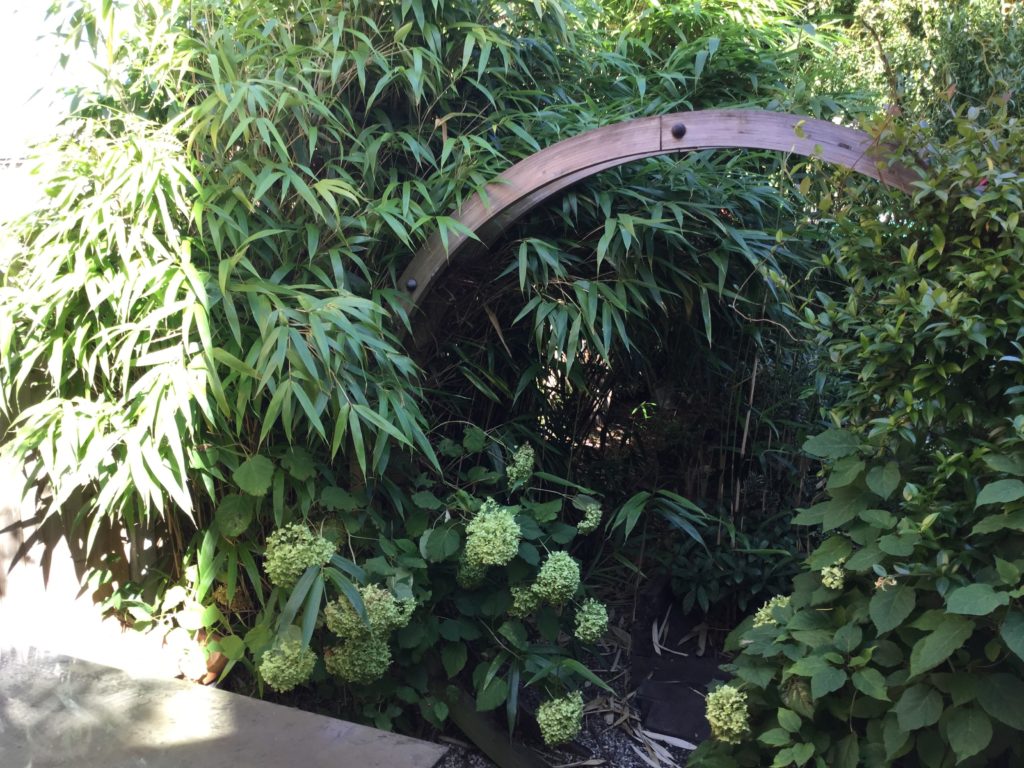Homeowners undeterred from planting bamboo despite threat to property
Just one in ten (9%) people in the UK would avoid planting bamboo in the garden because of the damage it can cause to homes and buildings, despite the fact this fashionable garden staple can cause more harm than the notorious Japanese knotweed.
New YouGov research released today by Environet UK shows that bamboo is still popular with homeowners and gardeners who may not realise the danger it can pose to property. Fewer than a third (29%) of those surveyed indicated that they would avoid planting bamboo because of its invasive nature, suggesting that most people are blissfully unaware of the risks.
Japanese knotweed may strike fear into the hearts of homeowners, but due to the greater distances its lateral roots can spread, bamboo has the potential to cause greater damage to homes and gardens. It too is capable of pushing through asphalt, brickwork, drains and cracks in concrete and is difficult to treat without professional help.
Readily available in garden centres and plant nurseries, bamboo can spread more than 30ft from the root ball beneath the ground, yet only 9% of people are aware of this. When left unchecked, ‘running’ varieties of the plant send out long lateral shoots which emerge in new locations such as lawns, patios, sheds and have even been known to grow through floors into homes. They commonly cross property boundaries, causing legal disputes between neighbours.
Despite this, most people with gardens would still consider planting bamboo, with the main reasons being that they believe it to be beautiful/attractive (26%), low maintenance (24%) and good for creating privacy where a garden is overlooked (21%).
While problematic plants should come with a warning, there is a serious lack of advice and guidance offered by garden centres and nurseries, with only one quarter (25%) of people who bought bamboo reporting that they were given any professional advice about it at the same time.
Nic Seal, Founder and MD of Environet, said:
“This research shows there is very little knowledge among the general public about the true nature of this problem plant. Bamboo may look beautiful, but people should be very careful to avoid running types and take precautions when planting any bamboo, such as ensuring they’re using specialist root barriers.
“Awareness of the invasive nature of Japanese knotweed has grown significantly in recent years but the biggest worry is that people are still buying and planting bamboo in gardens across the UK, completely oblivious to the risks.”
Advice to gardeners
Bamboo is best avoided, but if you do want to plant it, here’s how to prevent it spreading:
- Choose a clumping variety such as Bambusa or Chusquea
- Always plant bamboo in a container or strong pot, never directly into the ground
- Use a strong vertical root barrier to line the container, which is designed to contain bamboo.
- Prune bamboo hard and regularly, at least every spring, to keep it in check.
Case study
Elaine Hopkins bought a house in Tooting which had bamboo planted in the garden by the previous owners in order to hide an unsightly shed. It spread out of its raised bed and sent new shoots out across the garden in search of sunlight. Elaine had no idea of the invasive nature of bamboo until she returned from a walking holiday to find it had taken over her garden.
She says:
“On my return I discovered a bamboo jungle in the place of my garden. It had pushed its way out of the wooden beds and sent lateral shoots out so far that they were about to encroach into my neighbour’s property. After researching it online I realised how invasive bamboo is and that I had a major problem on my hands.”
Elaine instructed Environet to excavate the bamboo over the course of two days and re-landscape the garden, providing a ten-year guarantee for the work.

Invasive bamboo taking over Elaine Hopkins’ garden in Tooting, South West London
Kindly shared by Environet UK
















